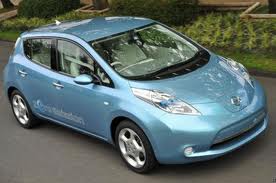Selling the All-Electric Leaf: Why Nissan and the Feds Are Investing Heavily in First Generation Buyers

In a front page story at the NY Times today, Bill Vlasic describes efforts by Nissan and the Federal government to cultivate the first generation buyers of the Nissan Leaf, the all-electric car available in December. As Vlasic describes, the 20,000 customers who have plopped down $99 to purchase the $33,000 compact are taking advantage of huge Federal and state tax breaks, rebates for installing home-charging units, and perhaps most importantly, one-of-kind support from Nissan customer relations.
Nissan has conducted focus groups and analysis of “online dialogues” as a way to better understand their customers’ backgrounds and information needs. They offer Leaf buyers home visits to ensure custom installs of battery chargers and correct maintenance. Communication modules installed in the Leaf will send data back to Nissan to track and respond to performance needs.
Nissan’s efforts–and the financial incentives provided by Federal and state governments–are exactly the types of strategies required if the Leaf and other all-electric cars are going to spread beyond a first-generation of early adopters and explode into wider consumer acceptance. As I described in a paper (PDF) published last year with John Kotcher (a fmr student now at the National Academies), many of these first buyers of the Leaf are what communication researchers dub “communicative adopters.”
Not only are these special individuals early adopters of a product—influencing the decisions of others by the display and use of the Leaf in their neighborhoods and communities—they are also likely to serve as opinion-leaders, sharing their endorsement of the car with others, educating others on how an all-battery car might work, how they can find out information about purchasing a Leaf, and eventually for second-generation purchasers in their community, how to install battery charging units, seek tax credits, and maintain and optimize use of the Leaf.
More so than any direct advertising, the relationship that Nissan and the government maintains with these communicative adopters is likely to be the primary mechanism driving the spread and uptake of battery-only cars.
See also:
Market Mavens: A Two Step Flow of Influence on Energy Choices
Can Energy Sector Workers Serve as Influential Public Ambassadors?





